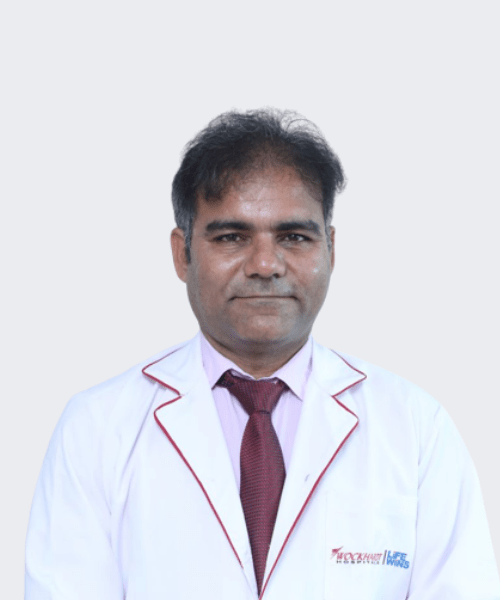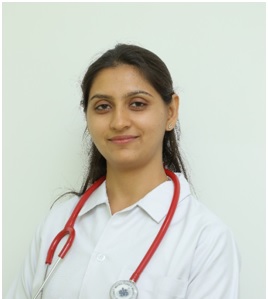Home » Speciality » ENT
ENT SURGERY, TREATMENT
AND COST

Why Choose Wockhardt Hospitals
for ENT Treatment?
The Department of ENT at Wockhardt Hospitals provides an array of innovative ENT treatments for patients suffering from problems of the ear, nose, and throat. The hospital employs a team of medical professionals with years of expertise in this area and suitable training in radiography and audiology which are frequently needed in ENT treatment. A group of highly qualified technicians carefully conducts various tests and present accurate reports to the professionals who assess and interpret the findings so they can decide on the best treatment plan for the patient.
Wockhardt hospitals use modern technology and innovative procedures for ENT care, of both children and adults. For simple or complex conditions, we specialise in providing advanced diagnostic and surgical expertise. We at Wockhardt are glad to state that our panel of ENT doctors has established the gold standard for ENT treatment and is known for their competence both nationally and internationally.
Renowned ENT Specialists
at Wockhardt Hospitals
- Mumbai Central
- Mira Road
- Nagpur
- Rajkot
What is Otolaryngology?
A medical specialty focused on the ears, nose, and throat is called otorhinolaryngology ENT. Since experts get both medical and surgical training, it is sometimes known as otolaryngology head and neck surgery. Otolaryngologist is another name for an ENT, or ear, nose, and throat specialist.
Otolaryngologists diagnose, evaluate, and control problems affecting the neck, larynx (voice box), throat, mouth, and other tissues as well as the ears, nose, sinuses, and other respiratory tract issues. When you visit an otolaryngologist, he may prescribe some tests to evaluate your condition and determine suitable ENT treatments. Depending upon your symptoms the tests prescribed may include blood tests, a sleep study, or a swallow study. Your doctor may also suggest tests for allergies, balance, or hearing. Otolaryngologists also perform ENT surgery.
What are the Signs and Symptoms
of ENT Problems?
ENT problems are common and the symptoms are not too severe. For the most part, symptoms include allergic reactions like sneezing, runny nose, cough, and sore throat. Symptoms vary from patient to patient. In some cases, an infection may manifest in the ear, nose, or throat. The need for ENT surgery arises in case of blockages in the respiratory tract such as a nasal polyp or lump in the throat. You should visit an ENT specialist if you have difficulty in swallowing, loss of hearing, or consistent tickling in the nose.
Some typical symptoms that indicate the need for intervention include:
- Consistent Runny Nose or nasal obstruction
- Coughing/Sneezing
- Sore Throat
- Ear Pain or ear discharge
- Hearing Loss
- Lack of refreshing sleep
- Balance Problems
- Sinus Pressure
- Skin Conditions
- Ringing in the ear
- Nose Bleeds
- A feeling of lumpiness in the throat that can be indicative of thyroid, tonsillitis, or adenoid inflammation/
- Nasal Congestion/Nasal Itching and Rubbing
- Hoarseness/Frequent Throat Clearing
- Airway Issues/Difficulty Breathing/Mouth Breathing
- Loss of Sense of Smell and/or taste
Causes of
ENT Problem
ENT problems are generally caused by bacteria. Symptoms may also be triggered by allergens like pollen and dust mites. Allergies can inflame and congest the nasal cavity, sinuses, throat, and eustachian tubes. Your ENT specialist may refer you to an allergist if he suspects an allergy to certain substances. Other more severe issues may be caused by tonsillitis – an inflammation of the tonsils in your throat. Bacteria can also infect your middle ear and cause pain and discomfort. Infections are treated using antibiotics.
Common Medical Tests to
Diagnose ENT Disease
ENT diseases and treatment depend upon the cause. To diagnose your cause, your otolaryngologist or ENT specialist will ask about your medical and family history, any known allergies, or history of reaction to certain medicines. He will ask about your symptoms and may recommend certain tests before arriving at a diagnosis.
Here’s a list of some common ENT diseases and the ENT tests used to screen for them:
- Ear Infection- If your doctor suspects that you are suffering from an ear infection, he will use an otoscope to look into your ear. Bacteria can infect the fluid in your eustachian tube causing loss of hearing, ringing in the ears, and nausea. Treatment usually involves the use of antibiotics for the bacteria and NSAIDs (Non-Steroidal Anti Inflammatory Drugs) to reduce pain and inflammation.
- Sinusitis or Infection and Inflammation of the Sinus - If a sinus infection is suspected, your doctor will use an endoscope to view the sinus cavity. The endoscope is inserted through the nose. Your Otorhinolaryngologist could ask for more ENT tests, such as the Four View X-rays or a CT Scan.
- Strep Throat- Strep throat is a common problem in many cities. It is characterized by irritation in the throat causing constant clearing of the throat. It is usually treated by antibiotics, decongestants, and anti-allergens. If your doctor suspects a more severe problem he may recommend a throat culture - a procedure where a swab is taken from the back of the throat for testing.
- Sleep Apnea - This is a condition where you stop breathing for short periods while you are asleep. Symptoms include snoring, choking not feeling refreshed upon awakening, and fatigue. Your doctor will advise you to undergo a sleep study to diagnose sleep apnea. He will also examine your throat for any indications of swollen tonsils, an enlarged uvula, or any other structures that could be obstructing your airway.
How to Prevent
ENT Infections?
ENT infection is a broad term that includes infections of the ear, nose, throat, sinuses, and other parts of the respiratory tract. Genetics are partially responsible for ENT infections so individuals with a family history of respiratory troubles may be vulnerable. You can however guard against ENT infection with a little precaution.
Ear Infection –
- Keep all vaccinations up to date.
- Ear wax should not be removed unless a doctor instructs you to.
- Never put Q-tips inside your ears.
- Stay away from cigarette smoke
- Do not insert your finger or buds into your ear
Sinus Infection –
- If you have persistent sinus issues, consider using a saline nasal spray every day.
- Use a medicated nasal spray to combat a cold until it passes.
- Identify and avoid allergic triggers like pollen, dust, and certain foods.
- Wear a mask in public places.
- Clean and wash well when returning from outdoors.
Throat Infection –
- Gargle every day using salt or a disinfectant mouthwash.
- Drink warm water twice a day to keep the throat clear
- Treat oesophagal reflux to prevent acid from infecting your throat
- Get adequate sleep
Sleep Apnea –
- Maintain a healthy weight.
- Avoid using sedatives or alcohol before sleeping.
- Avoid smoking
- Sleep on your side
What Are the Common Surgeries
Performed by an ENT Surgeon?
An ENT surgeon treats problems of the ear, nose, throat, and related organs. Under certain circumstances, your ENT specialist may recommend ENT surgery to treat your condition. Common surgical procedures in Otorhinolaryngology include:

- Ear Surgery - Ear surgery is most commonly recommended for hearing loss. Stapedectomy, ear tube insertion, and eardrum repair (tympanoplasty) are other common ear operations.
- Skin lesions - Most skin lesions are treated through medication and do not require surgery. However, cosmetic surgery may be recommended to remove ugly lesions. Surgery may also be recommended to remove cancerous or infected lesions.
- Throat Surgery - The most common throat surgery is tonsillectomy or removal of the tonsils if they are inflamed or obstructing the airway. Adenotonsillectomy is recommended when the airways are narrow or the adenoids are blocking the airway.
- Nose Surgery - Chronic sinusitis can cause nasal polyp - a lesion in the nose, which in turn can obstruct the nasal airway and cause constant irritation in the nose. Surgery may be recommended to remove the nasal polyp.
Why should I see an Otolaryngologist?
Common Medical Test to Diagnose Heart Conditions
Your primary care or general physician may refer you to an otolaryngologist or ENT care specialist if he suspects an infection or injury in your ear, nose, or throat. He may also do so if he suspects problems related to the nerves in your nose, ear, or throat. Suspicion of throat cancer, nasal polyp, problems with the eustachian tube, and other complications of the upper respiratory tract may require visits to an ENT care specialist.
FAQs
Q. How long does an ENT infection last?
Q. How serious is ENT infection?
Q. Can a CT scan detect an inner ear infection?
Q. Can an ENT specialist perform surgery?
Q. What is the success rate for ENT Surgery?
In otherwise healthy people, the success rate of ENT surgery is almost 95%.
Q. What is the ENT Surgery cost in India?
The cost of ENT surgery in India might vary based on the type of treatment, the surgeon’s ability, and their level of experience. Generally, the cost of ear surgery in India ranges from Rs. 50,000 to Rs. 1,00,000. The cost of ear surgery might also vary depending on the facility chosen by the patient and the type of anaesthesia employed.



























